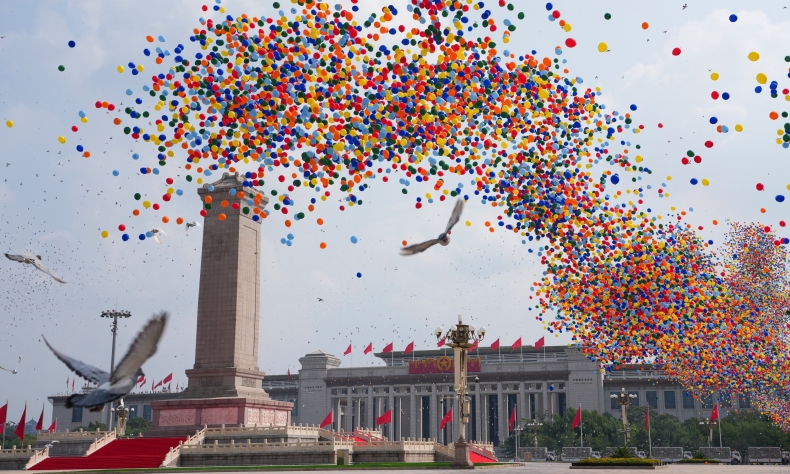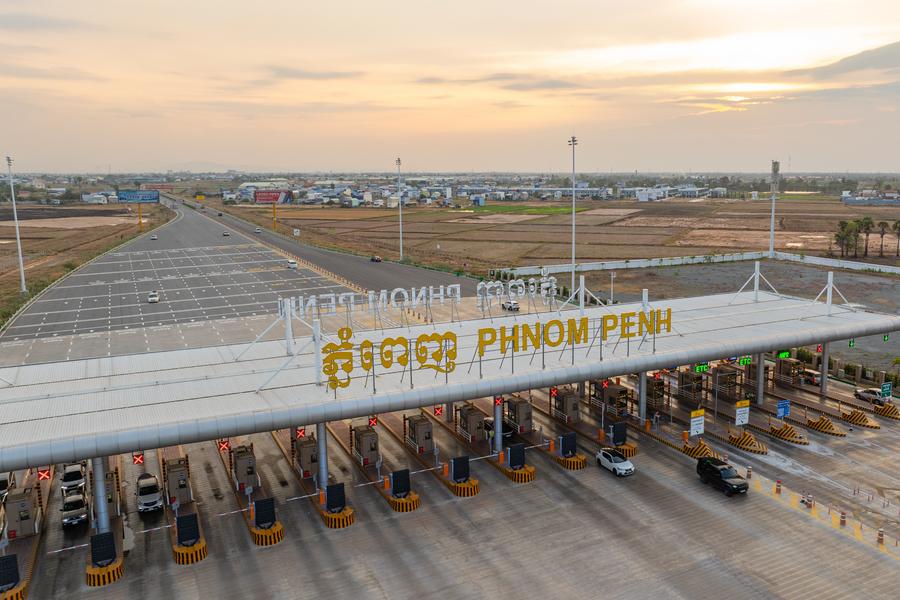Remembering for a Better Future

Despite its sufferings and pivotal role in the World Anti-Fascist War, China has followed a development trajectory culminating in its current status as a major country, assuming greater responsibilities and championing key initiatives on the international stage.
The preamble of the United Nations Charter, adopted after World War II, noted the determination of the peoples of the world “to save succeeding generations from the scourge of war, which twice in our lifetime has brought untold sorrow to mankind.” Given the scale of devastation, human suffering, and loss of life, it is appropriate to examine how humanity was pulled back from the abyss of World War II.
The path to securing “succeeding generations from the scourge of war” lies in understanding the historical facts of the conflict that brought “untold sorrow to mankind” and taking the necessary steps to prevent such a scourge from occurring again.
Chinese President Xi Jinping, in a speech delivered before the military parade commemorating the 80th Anniversary of the Victory in the Chinese People’s War of Resistance Against Japanese Aggression and the World Anti-Fascist War in Beijing, called on nations to eliminate the root causes of war and prevent historical tragedies from recurring.
However, in most historical accounts, especially in Western narratives, China – a principal victim of Japanese aggression and a key bulwark in the defeat of the Axis powers (Japan, Germany, and Italy) in World War II – is rarely mentioned, and if it is, it is often treated as a footnote. Yet, China was the first country to come under full attack by the Axis powers in 1937, two years before the Great Britain, four years before the US, and four years before the Soviet Union. Even before the full-scale invasion in 1937, Japan had occupied northeast China since 1931 and established a puppet state. China fought longer than any other Allied powers – 14 years – until the end of the war in August 1945.
Despite its sufferings and pivotal role in the World Anti-Fascist War, which secured victory for humanity over fascism, militarism, and Nazi extremist racial violence, China did not become a resentful, bellicose, or paranoid power. Instead, it has followed a development trajectory culminating in its current status as a major country, assuming greater responsibilities and championing key initiatives on the international stage, and in the process earning global prestige and influence.
Commitment to peace and development
Drawing from the lessons of the Chinese People’s War of Resistance Against Japanese Aggression and the World Anti-Fascist War, President Xi reiterated China’s commitment to peaceful development, highlighted the crossroads at which humanity stands, and warned that humanity is once again faced with a choice: peace or war, dialogue or confrontation, and win-win outcomes or zero-sum games.
Despite the challenges of contemporary times, China continues to exert itself in generating important initiatives that foster international understanding, peace, and development. The Belt and Road Initiative (BRI), a framework of international cooperation encompassing infrastructure connectivity within and across countries, policy coordination, financial integration, and robust people-to-people exchanges, has become widely recognised as a core element of contemporary international relations.

According to a World Bank study, trade flows among more than 150 BRI-participating countries are expected to surge by 4.1 percent and reduce the cost of global trade by 2.2 percent. A London-based consultancy, the Centre for Economics and Business Research, estimated that the BRI would increase world GDP by $7.1 trillion per year by 2040, with benefits widely distributed as improved infrastructure reduces “frictions that hold back world trade,” yielding clear universal peace dividends.
Since international cooperation is critical, China has made enormous efforts to contribute its expertise. The Global Development Initiative, outlined by President Xi in 2021, offered to share China’s experience that, in the same year, helped to bring an end to extreme poverty in China and enabled the country to achieve the UN Sustainable Development Goals a full 10 years ahead of schedule.
In 2022 and 2023, President Xi announced the Global Security Initiative and the Global Civilisation Initiative, respectively, to promote an inclusive global security framework and deepen dialogue among the world’s various civilisations.
These pivotal initiatives have been incorporated into several international discourses, providing opportunities for the vigorous exchange of ideas, viewpoints and perspectives, thereby enriching global engagement.
Africa’s role
African people also contributed to the victory in the World Anti-Fascist War. Many African war veterans, inspired in part by the success of the Chinese People’s War of Resistance Against Japanese Aggression, applied their experiences to the emerging anti-colonial wars for independence.
The confluence of the Chinese people’s anti-aggression struggle and Africa’s push to end colonial domination provided a historical starting point, culminating in the vigour and dynamism of their contemporary cooperation that is widely recognised for generating practical contributions to their respective efforts in modernisation, rejuvenation, and renaissance. At the forefront of the struggle for universal peace and inclusive development aimed at shared prosperity, China-Africa relations, forged in the heat of anti-imperialist struggles, serve as a testament to peace, international justice, fairness, and development. Their cooperation exemplifies the principles of peaceful coexistence while delivering the added practical value of win-win outcomes.
Despite pockets of hotspots in some regions of the world, the compelling and evolving trajectory towards a community with a shared future for humanity suggests that mankind will never again face the horrors of global mass slaughter that claimed an estimated 75 to 80 million lives in World War II.
The commemorative parade in Beijing, marking the 80th Anniversary of the Victory in the Chinese People’s War of Resistance Against Japanese Aggression and the World Anti-Fascist War, drew remarkable global attention to China’s rapid modernisation and its immense capability to defend its sovereignty while contributing to global peace. It sent an unmistakable message to secessionist and splittist forces in China’s Taiwan Province, and to their enablers anywhere in the world, that calls for the reunification of all Chinese people across the Taiwan Strait are not mere nursery-rhyme supplications, and that China will not tolerate endless obstruction or reckless external interference.
The author is director of Centre for China Studies, Abuja, Nigeria.
 Facebook
Facebook
 Twitter
Twitter
 Linkedin
Linkedin
 Google +
Google +










